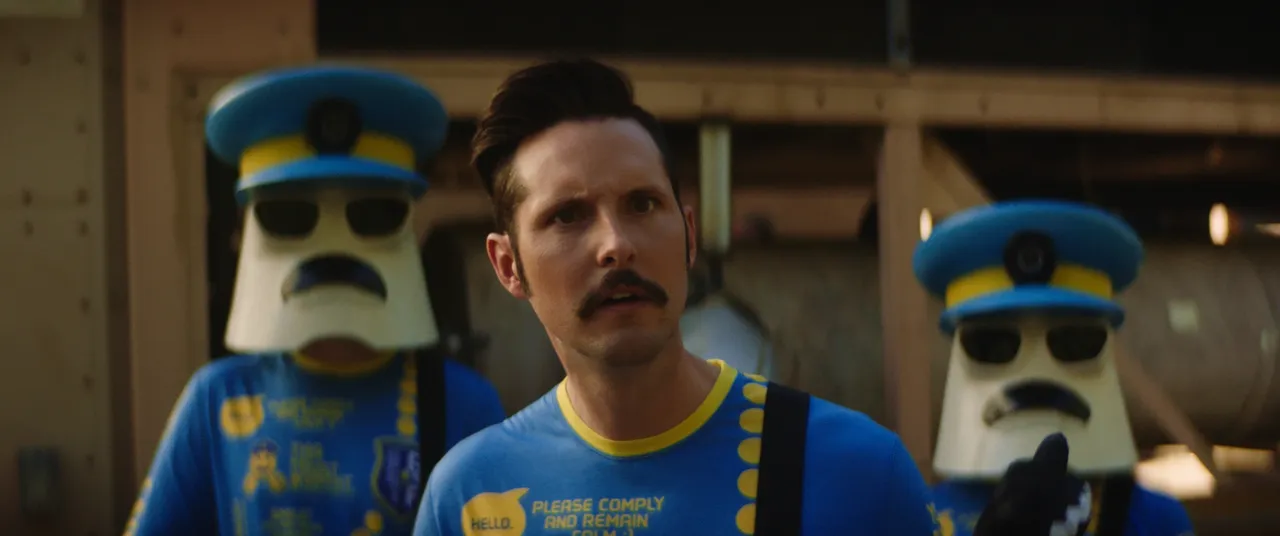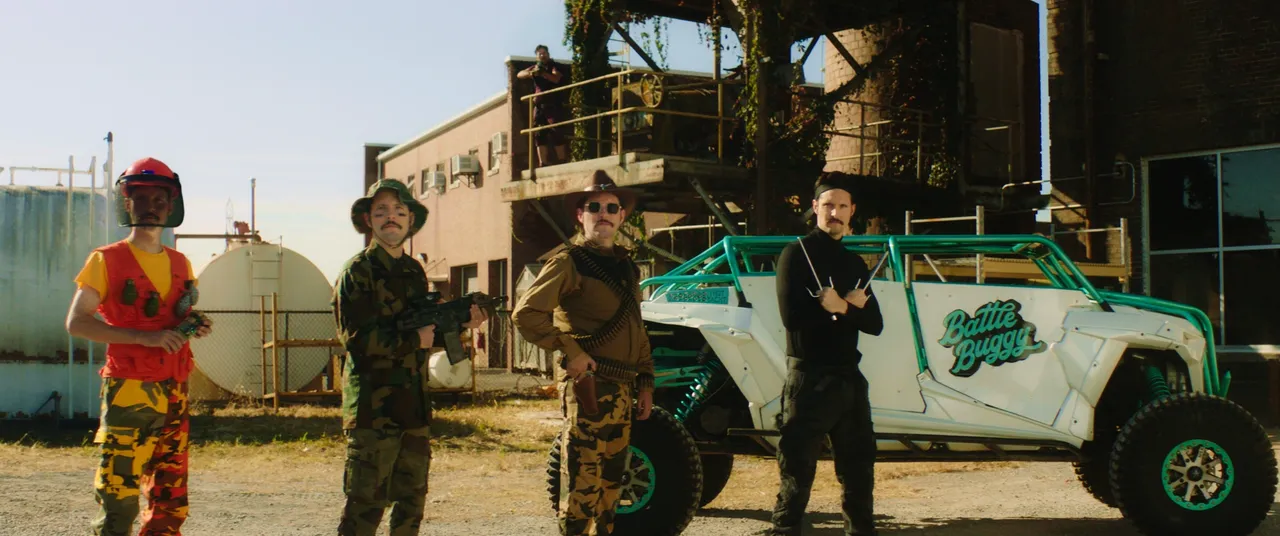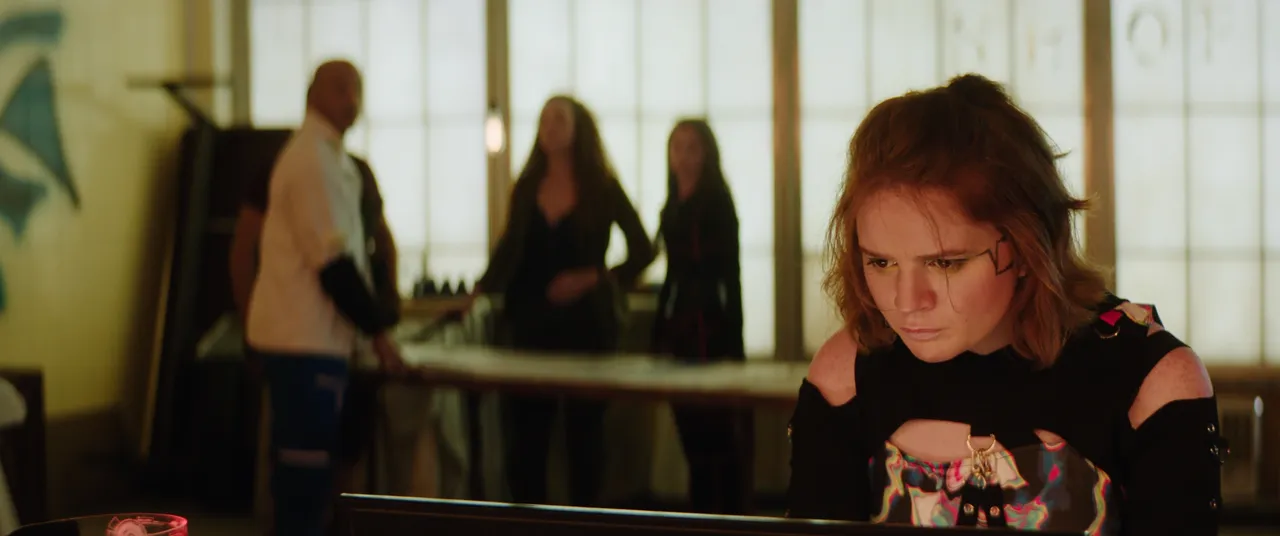Clone Cops is a difficult movie to discuss for the same reason that it ends up being so interesting: it takes a long time to show its full hand. Its premise, that American policing has been privatized and farmed out to a series of clones, packs a ton of comedic potential that the film, surprisingly, doesn’t choose to focus on. Instead, Clone Cops examines the tragic hilarity that comes from a world where the least capable are in charge. Like Blade Runner, its setting is run by corporate powers who have monetized and repackaged human beings themselves. Where it diverges is in refusing to imbue those powers with the grandiosity and respect they probably expect. Clone Cops understands that profit-driven plans, whether to make airplanes or artificial humans, will always be implemented by the unethical and the short-sighted. I spoke with writer-director Danny Dones and writer/star Phillip Cordell about the film’s production, philosophy, and future.
From Nashville Tennessee, the team met 15 years ago working on 48 Hour Film projects. Later collaborating on comedic web series Nashville Dad’s Club, the two knew they had the skills and experience necessary to release a feature film. On a low budget, they knew that success meant exploring ideas like no one else, the production mantra quickly becoming “let’s make a spectacle.” Production was swift, shooting for around three weeks in October 2022, and releasing to the public near the end of 2024.

Writer, actor, and producer Phillip Cordell, who was a delight to speak with
With years on sets, sometimes including commercials, the team had a good sense for a few important things: how to maximize a low budget, and the distorted way that advertisers present the world. Clone Cops uses a lot of tricks from both camps, layering glamorous pastels over a world that looks tired and used up. The police helmet is a perfect encapsulation of this philosophy: mass-producible and corporatized, it makes a great symbol but a terrible practical tool. The advertisers of tomorrow can’t see past the visual. In that corporatized future, sincere emotions are a liability; where society breeds it out of the populace, only a blank slate like a clone has a chance at experiencing real empathy. The police vs. criminals narrative is itself manufactured by a ruling class as a distraction. The media is an arm to advertise this conflict, masquerading as an information network.
It’s this juxtaposition, and the twists that it leads to, where the movie finds its strengths. It can take a while to understand them, as many hints to the full narrative are hidden behind apparent mistakes. Anything I found distasteful or confusing turned out to be only a setup for the eventual twists. All of the inconsistencies I had with the plot were purposeful, and fulfilled by the movie’s ending and overall themes. Clone Cops could have been a dumb comedy poking fun at the idea of a corporatized homogenous police force, and it would have been fine. Danny and Phillip took a step beyond that.
It’s for that reason, and a few others, that Clone Cops benefits from a rewatch or two. Seeing how the under layers are suggested the second time through makes you appreciate how the story unfolds, but it’s the art design that benefits the most. Danny’s 15 years as a prop master contributed a lot of texture to the overall setting, and the background is full of details that are easy to miss. The few segments of in-universe television are predictably covered in a miasma of text crawls and advertisements; they all go by too fast for you to absorb them in one viewing, but the more you can take time to find those little jokes, the more you appreciate how much care went into the pre-production.

If it looks cool, the marketing team doesn’t care that it isn’t effective
That pre-production benefited a ton from the stunt-coordinator’s work. Phillip played the clone on which the cops were based, meaning many scenes of him composited over himself multiple times. This put him in front of and behind the camera all over during the course of production, getting to know a wonderful crew. Corey Allen, director of photography, went to high school with Phillip and filled a lot of gaps during the short shooting schedule. Charles Royce, the VFX supervisor, made a big difference in the final product, learning new techniques to complete the many effects shots needed to portray a futuristic society. Ravi Patel was instrumental, stepping up later in production as the corporate overlord villain, bringing the perfect energy of clueless but dangerous techbro.
I was pleasantly surprised with my time watching Clone Cops. Its friendly yet menacing corporate future hides depths that bring me back to it days later. I don’t know if the team will get a chance to expand this setting, but the foundation they’ve laid is strong, with much more room to explore. Clone Cops reminds us that the people who make business decisions are motivated by all the wrong things. Effectiveness, longevity, and ethics are distractions to these people. If they can replicate a man into a cheap but inhuman weapon to preserve the status quo, they’ll do it. If there is profit to be made from policing or livestreaming violence, they’ll do it. Why not save the effort and combine the two, while we’re at it? With the corporations in charge, any distinction between police and criminal are purely matters of branding.

Clone Cops is going through festivals now, but you can expect news on the release soon. For now, you can follow production on the Clone Cops website, Youtube Channel,

















